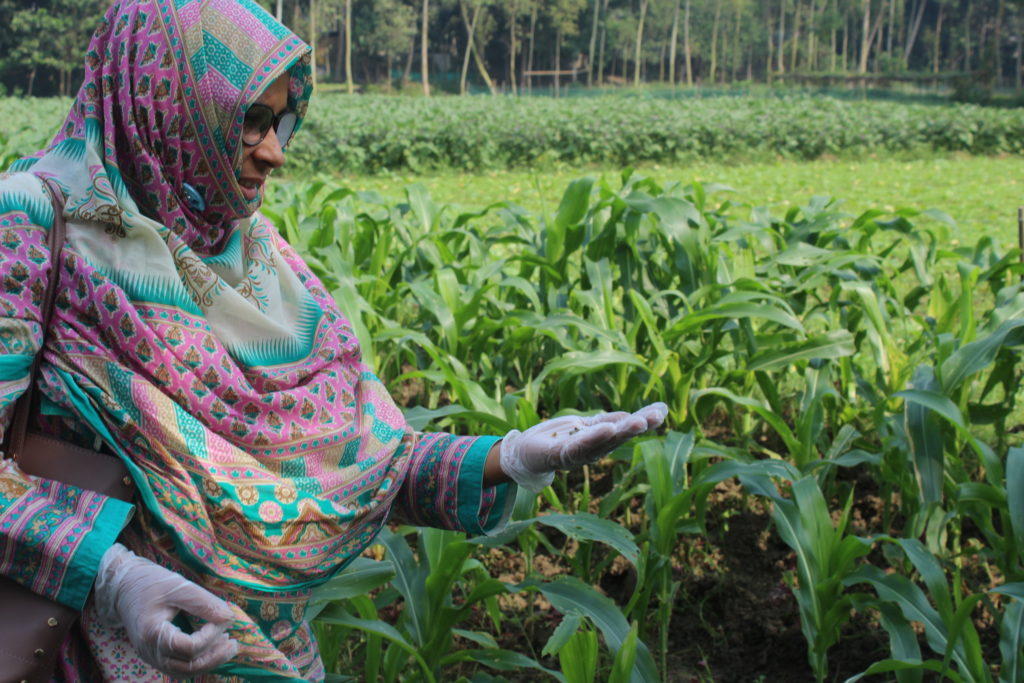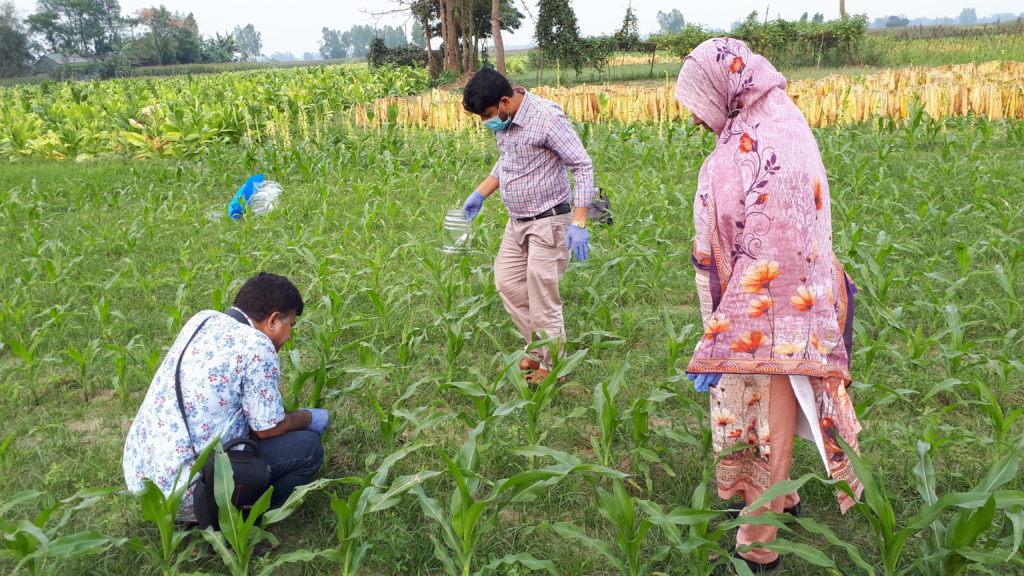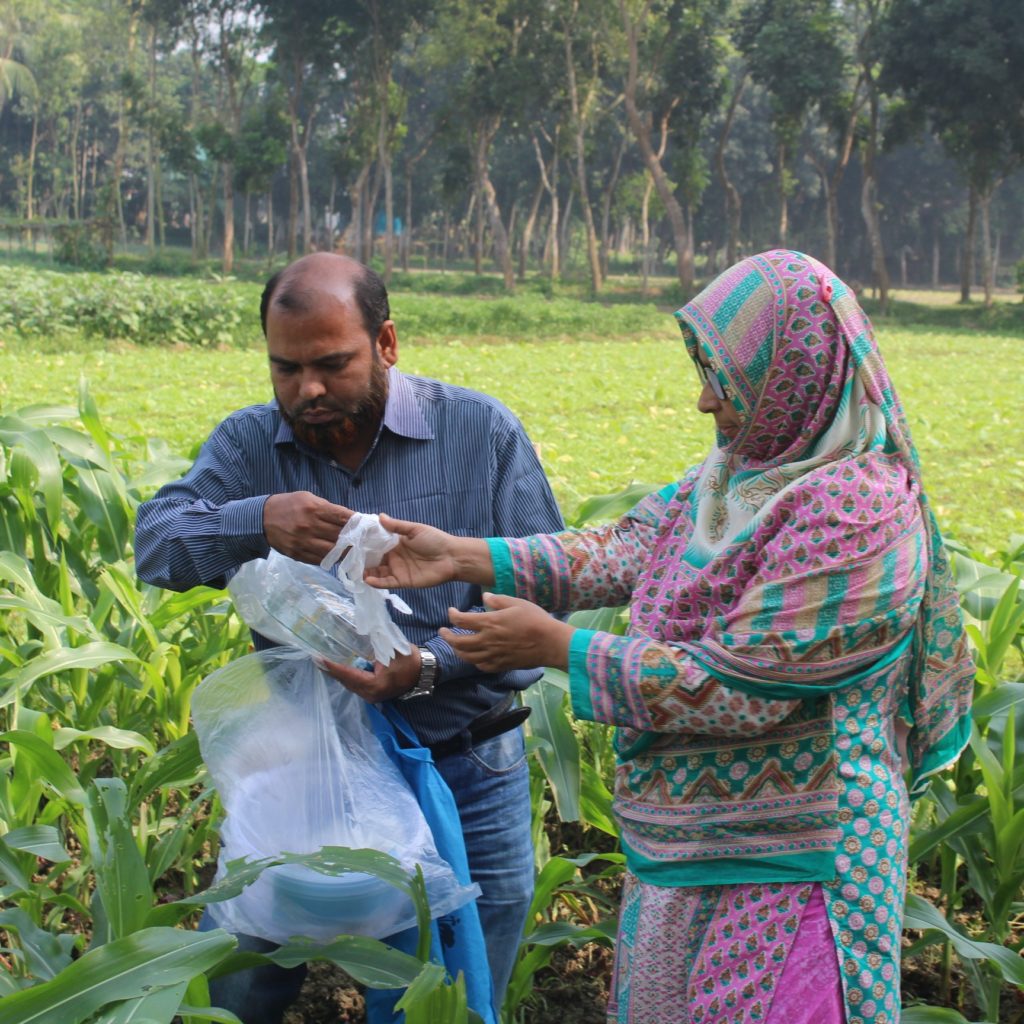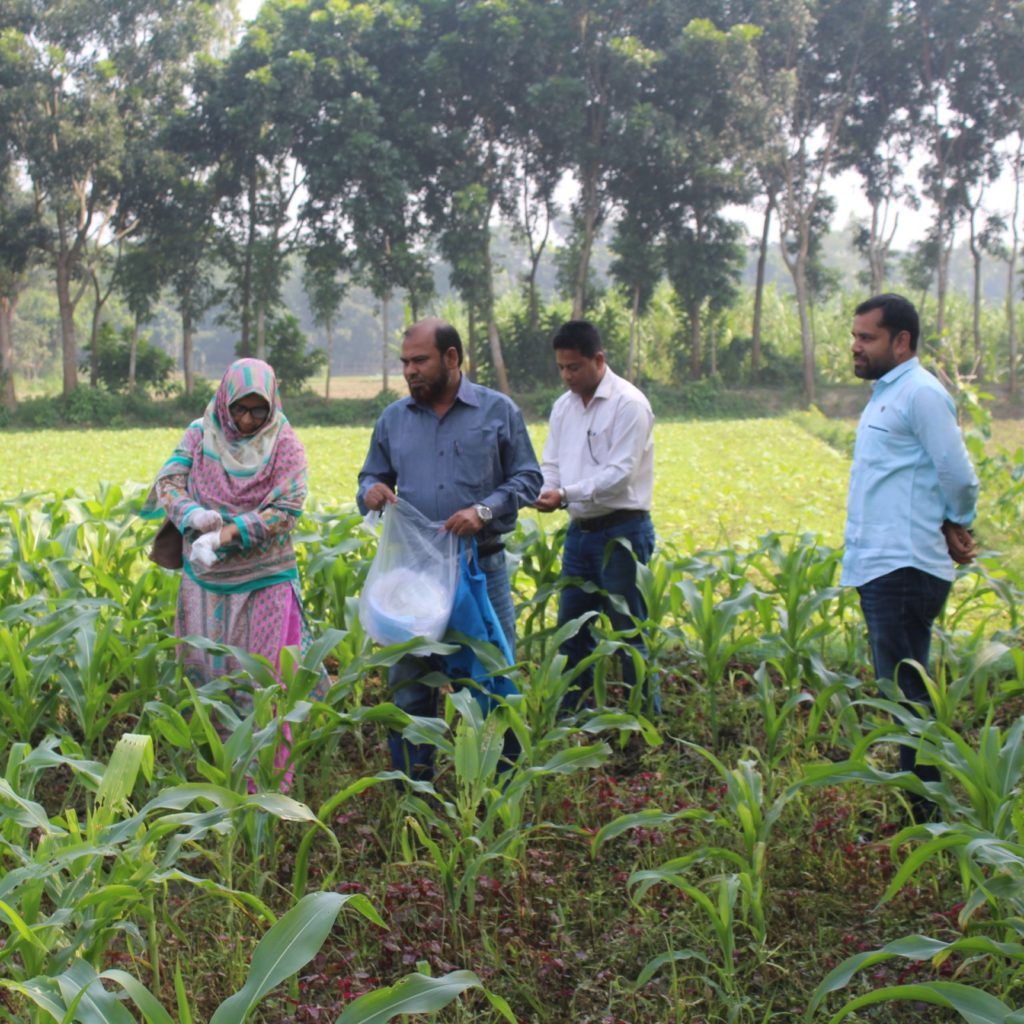By Nirmal K. Dutta, Debasish Sarker, Manju Thakur, and Malvika Chaudhary

Driven by changing climatic conditions and by increases in globalization and trade, the highly destructive pest, fall armyworm (FAW) has made its way towards Asia after invading Africa. After being reported in India in 2018, it was subsequently reported by other countries in Asia including Bangladesh, China, Indonesia, Laos, Myanmar, Nepal, Philippines, Sri Lanka, Taiwan, Thailand, and Vietnam.
The new pest invasions have always led to threatened food insecurity, health hazards and environmental impacts. The latter due to injudicious use of highly hazardous chemicals driven by confusion amongst the farmers as they are totally inexperienced in their management.
For several decades, biological pest control has been an eco-friendly alternative to pesticides. Natural enemies of insect pests are an important part of this management strategy. Biological control agents (BCA), include predators, parasitoids, pathogens, and competitors capable of suppressing pest populations to optimum level due to planned inundative releases. However, the utilization of biological control strategy is dependent on knowledge and resources to explore different species of natural enemies of the pest and researching their efficiency and tendency to manage the pest.
The CABI-led Action on Invasives Programme with support from the UK Foreign, Commonwealth & Development Office (FCDO) and the Netherlands’ Directorate-General for International Cooperation (DGIS) aims to protect and improve the livelihoods of 50 million poor rural households that are impacted by the worst invasive species, including FAW. One of its key focus areas, amongst others, is to develop a feasible and sustainable biological control strategy

Under this programme, CABI India is working closely with regional partners in Bangladesh at the Bangladesh Agricultural Research Institute (BARI) to explore and integrate the use of biological control agents to sustainably manage FAW over the long term. CABI with its long experience of working in the region, is playing a key role in facilitating the exchange of knowledge.
Initially, the project was seeking to understand which indigenous natural enemies of FAW are present in Bangladesh, how effective they are in managing the pest and later utilize the effective ones to be tested and validated under integrated pest management (IPM) trials.
With funding support from CABI, BARI has conducted field surveys in Gazipur, Manikganj and Bogura districts on maize crop during the months of August to December in 2019, and Manikganj district from January to June, 2020 to identify and assess the abundance of natural enemies of FAW. The Entomology division team from BARI recorded different species of egg and larval parasitoids during these surveys in these locations.
Since the taxonomic identification of a few of the natural enemies was not possible in the institute, BARI scientists needed support. CABI India with their strong partner network across the South Asian region are facilitating a knowledge exchange by connecting scientists from the Indian Council of Agricultural Research’s National Bureau of Agricultural Insect Resources (ICAR-NBAIR) and BARI, in order to help them achieve their objective of successfully utilizing these natural enemies for FAW management.
The survey results would also help in selecting effective species for lab bioassays and designing IPM packages to be tested under field conditions in the country. Based on initial research, BARI scientists feel that capacity building of farmers and other key stakeholders would be crucial, in addition to enabling an institutional and regulatory environment for new innovative technologies.
Author affiliations
Nirmal K. Dutta and Debasish Sarker: Entomology Division, Bangladesh Agricultural Research Institute
Manju Thakur and Malvika Chaudhary: CABI, India
Watch out for our upcoming blog to learn about the exciting biocontrol agents and their action on FAW in Bangladesh.
Photos courtesy of N.K. Dutta, BARI
Read more:
CABI collaborates with BARI to find biological ‘weapon’ to fight fall armyworm in Bangladesh
Study finds endoparasitoid wasp can reduce fall armyworm leaf consumption rate by up to 89%
Scientists confirm first report of egg parasitoid in Africa to fight devastating fall armyworm
Related News & Blogs
Biological control in action: Zambia’s field days on fighting fall armyworm
Experts from CABI recently held two field days and an expo in Zambia, showcasing innovative approaches to pest management to 584 farmers, agro-dealers and other stakeholders to help raise awareness of approaches to tackle the invasive fall armyworm (Sp…
11 June 2025






